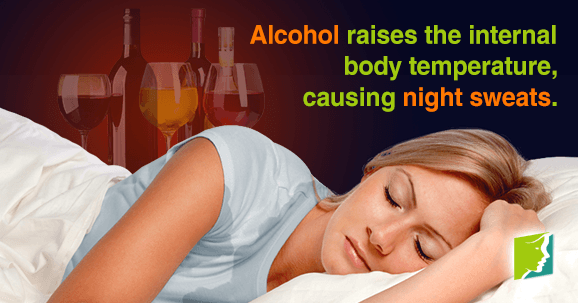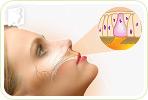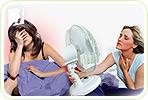Sweating episodes are a common complaint in menopausal women. During perimenopause, a woman is prone to extreme temperature changes due to fluctuating hormone levels in the body, to which the body responds by producing sweat to cool down. When this happens during the night, it is known as night sweats. Night sweats can be unpleasant and disrupt sleep patterns. However, they cannot be blamed solely on hormone levels. Dietary factors and evening habits have the potential to exacerbate or minimize the symptom. Consumption of alcohol, for example, can have an aggravate night sweats.
Alcohol: The Body's Response
When you consume alcohol, the liver produces enzymes to metabolize it. The liver can only do this at a rate of approximately 12-ounce serving of beer, or five-ounce serving a wine per hour. If alcohol is consumed at a higher rate, the liver is unable to work fast enough to prevent alcohol accumulating in the bloodstream. This causes the body to look for other ways of flushing alcohol from the body, and it does this by passing alcohol molecules through the sweat glands and through urination.
Alcohol also triggers an increase of internal body temperature for at least two hours after its consumption, causing the blood vessels to expand, the skin to become warm and flushed, and the body to produce sweat as it tries to cool down.
Alcohol and Night Sweats
When alcohol is consumed in the evening, it will continue to have internal effects in the body for at least two hours, depending on the quantity and rate of consumption. This means that if you drink more than the recommended allowance, you will likely sweat profusely, even if you do not feel additional effects from the alcohol. What's more, alcohol consumption affects depth of sleep after its consumption, which causes tiredness the following day even if a full eight hours of sleep were had. While alcohol acts as a sedative, sleep after drinking alcohol will likely be interrupted and unsettled, increasing the chances of awakening following a sweating episode.
Minimizing Alcohol Consumption
In order to reduce the likelihood of night sweats, reducing your alcohol consumption is recommended. If you enjoy a glass of wine with dinner, but be sure to follow this up with plenty of water to help your body metabolize the alcohol molecules and keep the body cool before going to bed.
While cutting back on drinking alcohol to prevent sweating episodes can be frustrating, focusing on the benefits of restful, sweat-free sleep will help you to remain committed to your lifestyle change. The energy and well-being that healthy sleep will restore in you is a great incentive. Try to find an alternative way of relaxing in the evening that's conducive to restful sleep, such as meditation or reading a novel.
Sources
- National Health Service. (2012). Night sweats. Retrieved April 7, 2014, from http://www.nhs.uk/conditions/night-sweats/Pages/Introduction.aspx
- National Institutes of Health. (2011). Sweating. Retrieved April 7, 2014, from http://www.nlm.nih.gov/medlineplus/ency/article/003218.htm
- National Institutes on Alcohol Abuse and Alcoholism. (2013). Alcohol Overdose: The Dangers of Drinking Too Much. Retrieved April 7, 2014, from http://pubs.niaaa.nih.gov/publications/AlcoholOverdoseFactsheet/Overdosefact.htm
- Roehrs, T. & Roth, T. (n.d). Sleep, Sleepiness, and Alcohol Abuse. Retrieved April 7, 2014, from http://pubs.niaaa.nih.gov/publications/arh25-2/101-109.htm
- Yoda, T. et al. (2005). Effects of alcohol on thermoregulation during mild heat exposure in humans. Alcohol, 39(3), 195-200. Retrieved from http://www.ncbi.nlm.nih.gov/pubmed/16377461



